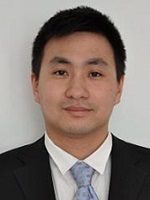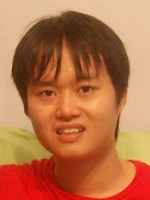
Dr. Hoa Le Minh
Title: The Emerging Optical Wireless Communications for Future Wireless Communications Networks
Bio:
Dr Hoa Le Minh is an Associate Professor at Northumbria University at Newcastle, UK. Prior to joining Northumbria University he was a research fellow at Siemens AG, Munich, Germany and at University of Oxford, UK. His research area is optical communications, visible light communications, sensor network and Smartphone technology in which he has published over 150 papers in journals and conferences. He participates in a number of European and industrial projects. Hoa has chaired a number of international conferences/workshops and sessions in telecommunications. He is currently the Chairman of IEEE Communications Society (ComSoc) Chapter of UK and Ireland, and the Editor of IEEE Communications Letters.
Abstract:
Artificial general lighting sources are currently evolving through the traditional fluorescent and incandescent sources to the modern energy saving light bulbs and now white light emitting diodes (LEDs). The introduction of solid state LED lighting source has attracted the attention of communications engineer’s worldwide, enabling the achievement of the dual functionality of room illumination whilst simultaneously transmitting wireless data via visible light communication (VLC), or optical wireless communications (OWC) in general, in optical spectrum regime. Although the existing wireless networks are primely dominated by radio-based technology, the emerging OWC will play increasingly important role in future wireless communications landscape. It is anticipated that both spectrum regimes, radio and optical, will eventually contribute equally for the next network generation, especially in nanocell and picocell network structures. This talk will outline the growth of optical wireless communications including VLC, and present the challenges and roadmap of the technology for the future generation of wireless networks.
 Dr Vien Ngo
Dr Vien Ngo
Title: Intelligent & Robotic Systems: Realizing real-life AI Dream
Bio:
Dr Vien Ngo is a Lecturer (Assistant Professor) in the School of Electronics, Electrical Engineering & Computer Science at Queen’s University Belfast since September 2017, UK. He has a PhD in Artificial Intelligence from Kyung Hee University in Korea in 2009. From October 2009 to May 2011, he was with the School of computing at National University of Singapore to work as a research fellow. From July 2011 to February 2013, he worked as a researcher at Ravensburg-Weingarten University of Applied Sciences in Germany. He then joined the Machine Learning and Robotics Lab in University of Stuttgart. His broad research interest lies in three main topics: i) Intelligent Systems: Reinforcement learning, policy search, deep reinforcement learning, planning under uncertainty (POMDPs), learning from human feedback; ii) Machine Learning: Probabilistic modelling, deep learning, Bayesian inference, active learning; and iii) Robotics: Motor skill learning, movement primitives, manipulation under uncertainty, model learning, motion planning, optimal control, and human-robot interaction.
Abstract:
Making intelligent robots to live in human environments has long been a dream of our human-being. With the rapid advancement of powerful hardware, accurate sensing and reliable control, robots become more capable or potential in carrying out highly complex tasks autonomously. The complexity of such tasks depends well on 1) the unstructured characteristics of the environment (that is designed for human, e.g. highly non-linear and highly-dimensional, geometric and symbolic models), 2) the very long working time horizon (hours, days, months of working autonomously), 3) the number of objects to be considered, and 4) pervasive and fundamental uncertainty in environment (uncertainty about existence of objects, about their locations, properties, and relations). Those issues lead to two notorious problems: the curse of dimensionality and the curse of history. In this presentation, I will present my recent research results on the planning and learning under uncertainty for robots and autonomous systems. In particular, I will show how to tackle both the curse of dimensionality and the curse of history. In the second part of the talk, I will show my recent results on learning environment models of uncertainty. In another aspect, I will describe how to optimize the agent behavior from direct interactions with the environment (model-free POMDP learning) or from the learned models (model-based POMDP learning).
